Vicky Kaushal's Chhaava Is Overzealous & Thundering, But Exhaustingly Repetitive
A historical biopic is a tricky genre to pull off, especially in India where blind worship is often disguised as reverence. There is no nuance to boast about in Chhaava, and that is its biggest flaw.
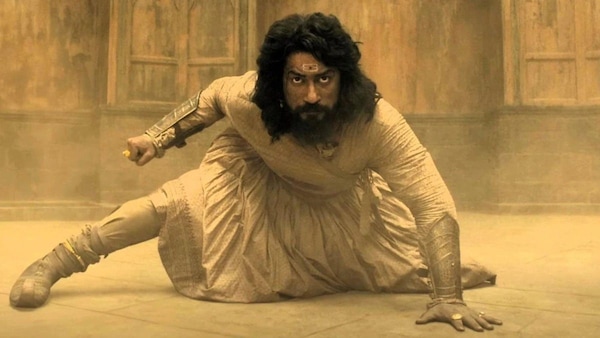
Still from Chhaava.
Last Updated: 04.24 PM, Feb 14, 2025
IF WARS COULD BE WON by merely screaming, Chhaava would be the biggest winner of Bollywood, courtesy a howling Vicky Kaushal who doesn’t miss one opportunity to deliver a roaring, face-trembling shriek. And they keep coming, one after another, passion and intensity intact. But soon enough, the shrieks begin to merge into one, and you can’t tell the difference between the several war scenes in the film.
At the end of the 161-minute runtime, Chhaava feels like a loop. This loop starts with flashback shots of a scared little boy running amok trying to find comfort and protection of his parents; the little boy is Sambhaji Bhosle, Chhatrapati Shivaji Maharaj’s son. As an adult (Vicky Kaushal), he’s now brave, noble, ferocious and undefeatable, and we are shown this through various war set-pieces that start off feeling innovative and immersive but eventually feel exhausting to follow. There’s only so much shouting-fighting-face-trembling one can palate in three hours. But the loop continues, much to our chagrin.
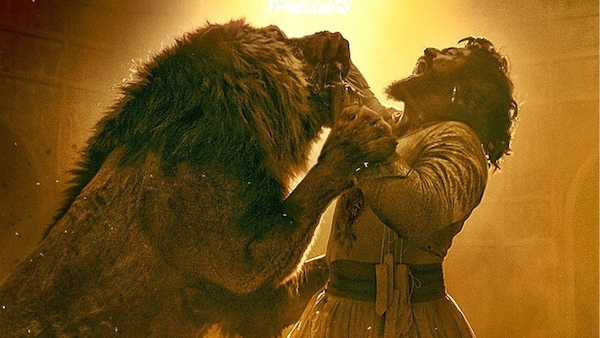
The film is adapted from Shivaji Sawant’s novel of the same name, attempting to tell us the story of the Maratha warrior-king, whose legacy is often overshadowed by his celebrated father. Chhaava opens with the news of Shivaji Maharaj’s death, but when the Mughals convey this message to Aurangzeb (Akshaye Khanna), he knows this isn’t the good news he was hoping for. Just then, the Maratha forces attack them surreptitiously, to prove a point: Sambhaji doesn’t believe in hiding and waiting. Whether it’s a whole army of Mughals, a lion or even his own family members.
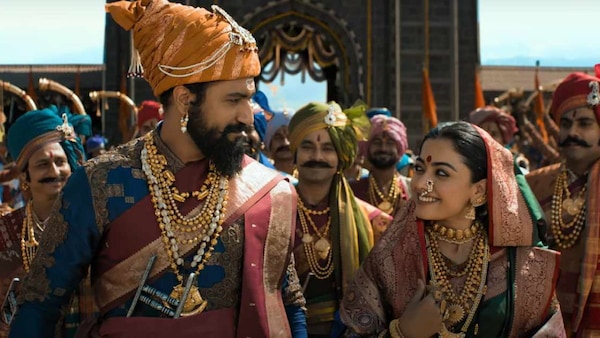
From that point on in the film, every couple of minutes, Sambhaji launches into large-scale wars, and wins (except in the climax, because one has to stay true to history also). The battles are interspersed with forced moments of family life, most starkly seen in scenes with his wife Maharani Yesubai (Rashmika Mandanna). A skilled director would have been able to show some creative amalgamation between the louder moments of the film and the quieter ones. But Laxman Utekar seems to be singularly focused on establishing his protagonist as the “son of a lion” and therefore everything else falls flat. The end result is an overzealous, thundering but ultimately monotonous film.
Props to Vicky Kaushal and Akshaye Khanna, who carry the film on their shoulders. Kaushal’s hard work can be seen in every frame. One of the biggest issues with the writing and execution of Chhaava is how diplomatic and safe it wants to be. One can’t fault the makers for it, given the current environment of this country, but if we were to take away Vicky Kaushal’s earnest performance, there’s no real reason to watch the film.
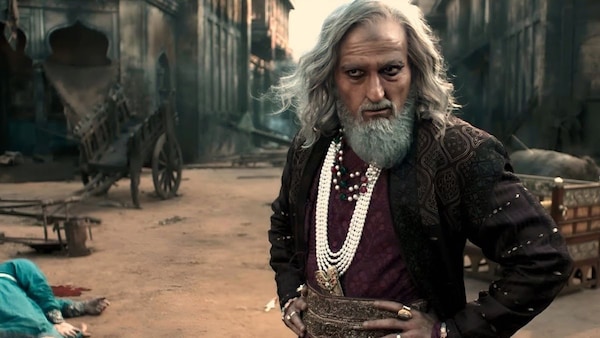
The supporting cast — including Ashutosh Rana, Vineet Singh, Divya Dutta, Neil Bhoopalam and Diana Penty — get their day in the sun, and there are some engaging moments in the film, mostly in the first half. In some of the quieter moments between all the battles, the cinematography (Saurabh Goswami) is allowed to shine, along with Rahman’s compositions, which sound familiar, yet manage to be rousing.
A historical biopic is a tricky genre to pull off, especially in India where blind worship is often disguised as reverence. There is no nuance to boast about in Chhaava, and that becomes its biggest flaw. When the film's screening began, the entire auditorium burst into an enthusiastic “Bharat Mata Ki Jai” right after the national anthem. The audiences were ready to be wowed, inspired, and taken on a cinematic journey. By the end of the film, we were all collectively yawning.
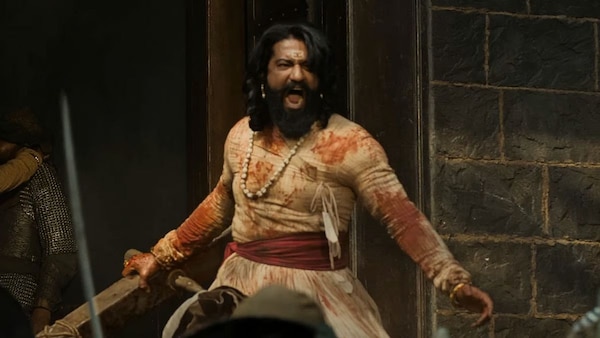
Chhaava ultimately is no different than a half-baked documentary because it makes no attempt to offer a unique perspective. It does not attempt to answer a fundamental question all creators should ask before they embark on ambitious projects: why will the audiences get out of the comfort of their homes to watch our film? The audience doesn’t need a big-budget Bollywood movie to educate them about a historical figure. It’s a pity that the mainstream Hindi film industry can’t stop spoon-feeding its viewers because they’re so scared of ruffling feathers. Good cinema requires courage — not the screaming, shrieking kind. Chhaava should have solidified Vicky Kaushal as a credible movie star (and maybe it still can, who knows). But any seasoned movie-watcher will be able to see that a film like this only lets down a talented actor like Kaushal. He deserves better.
Disclaimer: The views expressed in this column are those of the author and do not necessarily reflect the official policy or position of OTTplay. The author is solely responsible for any claims arising out of the content of this column.

 Premium
Premium